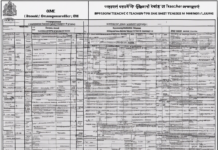Gary (37) started experiencing rapid heartbeat and high body temperature one afternoon while remotely working from his NYC apartment. He hadn’t slept well last night thanks to a presentation and had taken help from Sumatriptan, a common migraine drug that helps with head-splitting aches.
What Gary forgot was that he was also undergoing treatment for some mental health issues and had been prescribed Fluoxetine for the same. The thing is that both the drugs influence and affect the production of a hormone called ‘Serotonin’. When Gary took them together, it resulted in a medical condition called Serotonin Syndrome.
The mistake that Gary made was combining a medication that was prescribed by a medical professional with something that he looked up on the internet. Like Gary, there are millions of us that make serious and non-serious medication mistakes in our everyday lives. Some of them are innocently harmless while others can lead to life-threatening situations.
What are some common causes of medication mistakes?
Before we get to the list of the most common medication errors, it is important to first understand what causes them. The first thing that you should know about medication errors is that it can happen anywhere. For example, there might be a mistake at the pharmacy, or hospital, or even at a care facility for senior citizens.
You should also note that senior citizens, as well as young children, are more prone to medication errors. This is because there are more chances that they are not going to read or be aware of what is being given to them. Adults, on the other hand, are more sensitive to asking, checking, and reading before consuming a medicine.
The following are some causes that lead to medication mistakes-
- Poor communication between the doctor, pharmacist, and patients.
- Lack of awareness about a prior health condition or existing medications.
- Confusion with regard to medication abbreviations.
- Failure to understand different chemical compositions or power dosage.
When any of the above goes wrong or is not done properly, it leads to a medication error or mistake.
List of 5 Common Home Medication Mistakes to Stop Making Right Now
- Not having a dedicated medicine cabinet, drawer, or chest-
Yes, you read that right. The first mistake that you need to stop making is leaving your medications all over the place. Some here, some in the washroom, some on top of the refrigerator and so on. You need to have a dedicated space where you store everything. This will allow you to remember as well as prevent it from getting into the hands of children or pets.
- Not paying attention to medicine consumption troubles and problems-
Did you know that one in every three individuals has trouble swallowing their medication? They take help from juices, food items, soft drinks, and even energy beverages to swallow. This can lead to serious health complications as well as lower the efficacy of the medication. A better and more scientific approach would be to take help from an oral medication help.
- Depending on Google and social media for your knowledge-
While search engines can help at times, they are also a minefield of problems. Make sure that while you are using search engines and social media for researching symptoms, you never go ahead with a medication that is mentioned as a possible solution. Search engines do not know about your prior medical conditions. You should only consult a trained and qualified doctor.
- Communicating to the doctor about any existing medical or condition-
While some doctors might ask you whether you are currently on any medication, the majority will not. This is why whenever you see a doctor for an issue, make sure to tell them about prior illnesses, medicines, and any other ones that you might be on. Medications are not guaranteed to be compatible at all times. You do not want to suffer from any adverse side effects.
- Ignoring asking questions on medication uses, side-effects, and consumption-
Asking questions to the doctor or pharmacist is a good thing and should be done. You do not want to be on the receiving end of any medication problems. Make sure that you understand the dosage, power, and abbreviations. Do not hesitate to ask about side effects and preventive measures that you can safely take if you experience those side effects.
The Bottom Line
Additionally, you should never chew medicines that are not advised to be done so. You should also not break up medicines to make them easier for you to swallow. Cutting up pills might not be recommended for medicines since they can get affected the stomach. If you have any doubts on this topic or would like us to address any specific questions, please let us know in the comments below.








